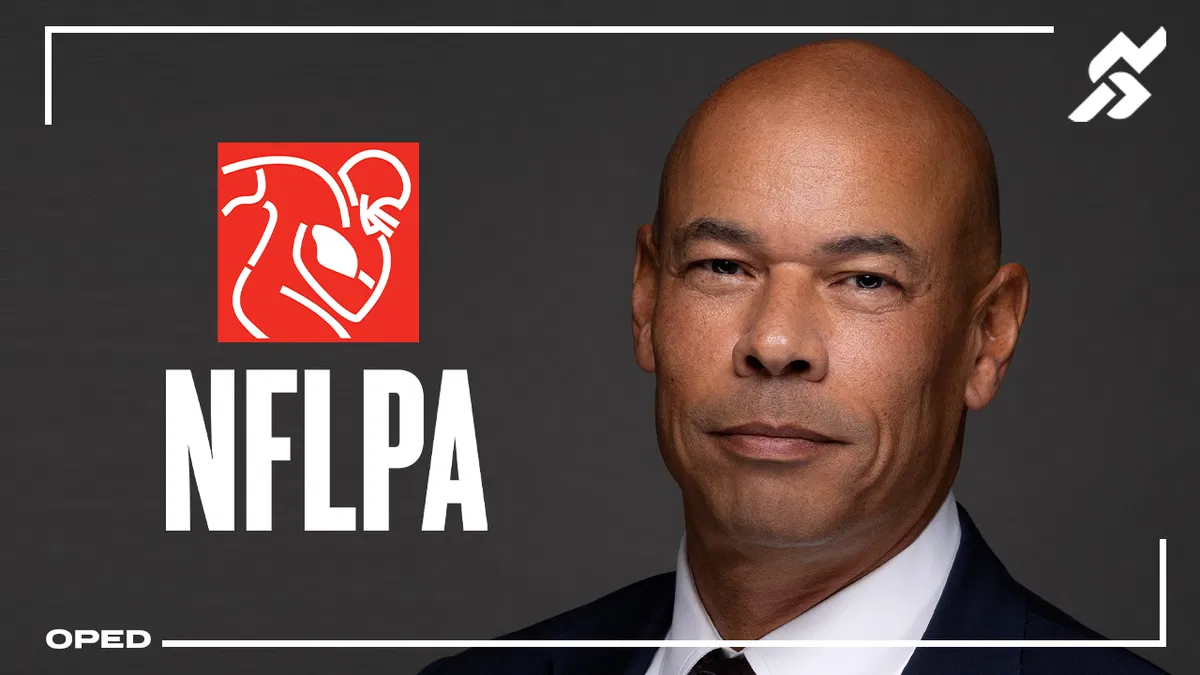

The NFL Players Association locker room just got rocked by an unexpected audible. Lloyd Howell Jr., the union’s Executive Director for barely two seasons, dropped his resignation bomb this week. Think of it like a franchise QB calling his own number on 4th and long, only to slide before contact—shocking, abrupt, and leaving everyone scrambling to figure out the next play.
Watch What’s Trending Now!
In a statement echoing the weight of the role, Howell laid out his reasoning: “Two years ago, I accepted the role of Executive Director of the NFLPA because I believe deeply in the mission of this union and the power of collective action to drive positive change…” He stressed his core mission: fighting relentlessly for players’ health, safety, financial futures, and well-being. Yet, the sudden exit wasn’t about a lack of belief.
“It’s clear that my leadership has become a distraction,” Howell stated plainly. “For this reason, I have informed the NFLPA Executive Committee that I am stepping down… effective immediately. I hope this will allow the NFLPA to maintain its focus on its player members ahead of the upcoming season.” He signed off, “proud of what we have been able to accomplish,” pledging to root for players from the sidelines.
ADVERTISEMENT
Just in: NFLPA executive director Lloyd Howell has resigned from his position. pic.twitter.com/ZRVSkdqMrt
— Ari Meirov (@MySportsUpdate) July 18, 2025
So, what caused this high-profile fumble? Howell, the Ivy League-educated former Booz Allen Hamilton CFO (retired after a massive 34-year run), arrived in 2023 hailed as a data-savvy, corporate heavyweight who could revolutionize player advocacy. His vision was ambitious. Remember his Super Bowl XIV address in NOLA? He declared, “The players are the heart and soul of this sport… we are taking a data-based approach to bring fairness, transparency, and the player perspective…”
But the game plan unraveled under intense blitzes. The primary pressure came from a glaring conflict of interest: Howell’s simultaneous, lucrative ($3.4 M in 2024!) part-time consulting gig with The Carlyle Group. Carlyle isn’t just any firm; it’s NFL-approved to buy minority stakes in teams. A company potentially sitting across the bargaining table with owners having the players’ union boss on its payroll. There is also increasing scrutiny on many of Howell’s decisions in that position.
ADVERTISEMENT
When side hustles blitz the mission: Howell’s conflicts, oneteam scrutiny, and the fallout
In May, ESPN reported that the FBI and federal prosecutors were investigating the union’s financial ties to OneTeam Partners—a group-licensing firm co-founded by the NFLPA and MLB Players Association. Both NFLPA executive director Howell and MLBPA chief Tony Clark serve on OneTeam’s board of directors.
ADVERTISEMENT
Imagine the union boss getting paid by a company potentially sitting across the bargaining table with owners. Former NFLPA counsel Jim Quinn blasted it as an “outrageous conflict,” a stark contrast to predecessors who focused solely on union duties. Reports surfaced that union lawyers urged Howell to ditch Carlyle; he reportedly declined. This wasn’t just a holding penalty; it felt like a fundamental violation of the union’s core mission—players first, always.
The flags kept flying. Players were kept in the dark about a crucial January arbitration ruling concerning owner collusion on guaranteed QB contracts, thanks to an NFLPA confidentiality agreement Howell oversaw. Adding to the pile-on, the federal probe launched into the NFLPA’s lucrative licensing arm, the aforementioned OneTeam Partners.

Coupled with his other hefty board payouts (Moody’s, GE HealthCare), the picture emerged of an exec juggling multiple high-paying gigs while the core union job faced storms. For players, undivided loyalty mattered most, and Howell’s divided focus became untenable. Despite the NFLPA Executive Committee issuing statements of unity earlier this year, the distractions Howell cited proved too much.
His resignation, effective immediately, is a stark admission that the controversies overshadowed the work. It leaves the union, facing critical issues like the push for an 18th game and the next CBA negotiations, searching for a new field general—one who can navigate the complex blitzes of modern football business with unwavering, unquestioned allegiance to the players in the trenches.
Howell’s brief tenure, marked by bold vision but marred by conflicting interests, ends not with a championship drive but with the sobering realization that in the high-stakes game of player representation, trust is the ultimate currency. And it’s incredibly hard to earn back once fumbled.
ADVERTISEMENT
ADVERTISEMENT
ADVERTISEMENT
ADVERTISEMENT
.png)
.png)
.png)



